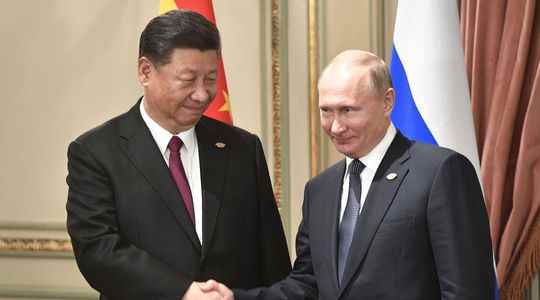COLOMBIA
Gustavo Petro, an ex-guerrilla in the presidency
With nearly 11.3 million votes – the highest figure in history for a presidential election – and only 700,000 ballots ahead of independent entrepreneur Rodolfo Hernández, the former mayor of Bogota Gustavo Petro was elected President, on June 19, with 50.44% of the vote. Mr. Petro’s victory is “historic”, observes the weekly week, because “for the first time, the left will preside over the destinies of the nation with a specificity (…) since the new head of state is a former guerrilla of the M-19 movement”. This group had signed peace agreements with the Colombian government in the 1990s, ending the armed struggle.
UNITED STATES
The Covid vaccine for toddlers
Joe Biden hailed June 18 as “a monumental step in the fight against the virus” after the health services gave the green light for the vaccination of children aged 6 months to 5 years. This was the last category of the population excluded from the programme, ie 20 million people. Only messenger RNA vaccines from Pfizer and Moderna are licensed. If children rarely develop serious forms, they remain at risk and can transmit the virus. “More than 13.5 million children have tested positive in the United States, more than 40,000 hospitalized and more than 1,000 have died,” remind him washington post.
SENEGAL
The specter of political conflagration
Marches against the invalidation of the main opposition list to the July 31 legislative elections degenerated on June 17. Three young people were killed in Dakar and Casamance (south) in clashes with the police. Opponents were arrested, others saw their homes surrounded by the police. Among them, Ousmane Sonko, who called Macky Sall a “murderous president” and denounced his ambitions for a third term. “Macky Sall has just plunged the whole country into an insurrectionary climate of permanent confrontation, from which he will not emerge unscathed”, considers the information site Impact.sn.
UK
London authorizes the extradition of Assange
The possibility of a US trial is getting closer for Julian Assange. The British government announced on June 17 that it had signed the WikiLeaks founder’s extradition order. He is being prosecuted in the United States for the leak, from 2010, of more than 700,000 classified military and diplomatic documents.
“If Assange is found guilty, he faces up to ten years in prison for each of the 17 most serious counts against him,” specifies the American public radio NPR. That is more than 170 years of detention. But the legal battle is not over. The whistleblower will appeal London’s decision.
UKRAINE
NATO fears “years” of war
In Ukraine, the specter of a long war is growing. “We have to be prepared for this to last for years,” NATO Secretary General Jens Stoltenberg warned in an interview with the German daily. Picture, June 19. A situation in the face of which the head of the Atlantic Alliance urged Western countries to “not relax” their military support for kyiv. “US officials insist that Western arms continue to flow to the front lines. But local reports of arms shortages … have raised questions about the effectiveness of the lines of defense. ‘supply’, note CNN.
NETHERLANDS
Russian spy exposed
He was about to enter as an intern at the International Criminal Court (ICC), based in The Hague. An agent of the GRU – Russian military intelligence -, operating under a false identity, was arrested in April, the Dutch authorities revealed on June 16. As the ICC conducts war crimes investigations in Ukraine, “he could have had access to information and people of great interest and could have influenced certain cases”, specifies the daily From Telegraaf. Sergey Vladimirovich Cherkasov, 36, pretended to be Viktor Muller Ferreira, a citizen of Brazil, the country where he had arrived in 2010.
CHINA
Xi Jinping reaffirms his support for Putin
The Chinese president chose the day before the visit of the German, Italian and French leaders to kyiv to reaffirm his support for his Russian counterpart in terms of “sovereignty” and “security”. This is the second known telephone conversation between the two leaders since the beginning of the attack on Ukraine by Russia. Beijing has tried to present itself as an “impartial broker for peace”, underlines the New York Times. But the conversation between Xi and Putin “leaves little doubt that, whatever his doubts about invading Ukraine, Mr. Xi remains committed to close ties with Russia, which help to offset the growing antagonism with the United States and its allies”, continues the daily.
Clément Daniez, Axel Gyldén, Charlotte Lalanne, Paul Véronique and Cyrille Pluyette
